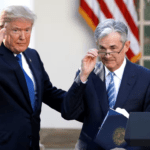The fall of President Bashar al-Assad and the rebel seizure of Damascus marks a monumental turning point in Syria’s history and the Middle East. Here’s a summary of global reactions to this dramatic development:
Global and Regional Leaders
European Leaders:
- Ursula von der Leyen (EU Commission President): Hailed Assad’s downfall as a “historic change,” pledging European support for unity and rebuilding efforts while warning of associated risks.
- Kaja Kallas (EU Foreign Policy Chief): Called the fall a sign of Russia and Iran’s weakening influence, stressing the importance of regional security.
- Roberta Metsola (European Parliament): Acknowledged the significance of Assad’s fall and emphasized the critical importance of Syria’s next steps.
United States:
- President Joe Biden: Monitoring the situation closely with regional partners.
- President-elect Donald Trump: Framed Assad’s departure as evidence of the failure of his backers, Russia and Iran, and called it an “historic moment.”
Middle East:
- Iran: Urged dialogue and political processes while reiterating respect for Syrian sovereignty and unity.
- Israel: Prime Minister Netanyahu called it a major blow to Iran’s axis and pledged to ensure no hostile forces establish near Israel’s borders.
- Turkey: Highlighted Syria’s territorial integrity and called for inclusive governance while warning against allowing terrorist organizations to exploit the chaos.
- Saudi Arabia: Engaged with stakeholders to prevent chaos and called for a peaceful transition.
- Qatar: Advocated adherence to the UN Security Council Resolution 2254 for a ceasefire and political transition.
- Egypt: Called for preserving Syria’s state institutions and sovereignty while supporting the Syrian people.
Key Observations and Responses
- Iran and Russia’s Influence Wanes: Assad’s ouster reflects the weakening hold of his primary allies—Russia, burdened by Ukraine, and Iran, battered by Israeli strikes.
- European Commitment: Leaders like Macron and Scholz emphasized the importance of rebuilding efforts and protecting minorities.
- U.N. Involvement: Special Envoy Geir Pedersen underscored the need for inclusive political processes and international humanitarian law.
Outlook and Challenges
- Political Transition: Leaders from Europe, the U.S., and the region emphasized the importance of a stable and inclusive transitional government.
- Humanitarian Crisis: UN Aid Chief Tom Fletcher highlighted the immediate danger to displaced populations and the need for urgent international support.
- Security Risks: Concerns remain over the potential rise of extremist groups and the exploitation of chaos by organizations like ISIS and the PKK.
The world watches closely as Syria enters a critical phase, with opportunities for peace and stability tempered by deep challenges and uncertainties.










